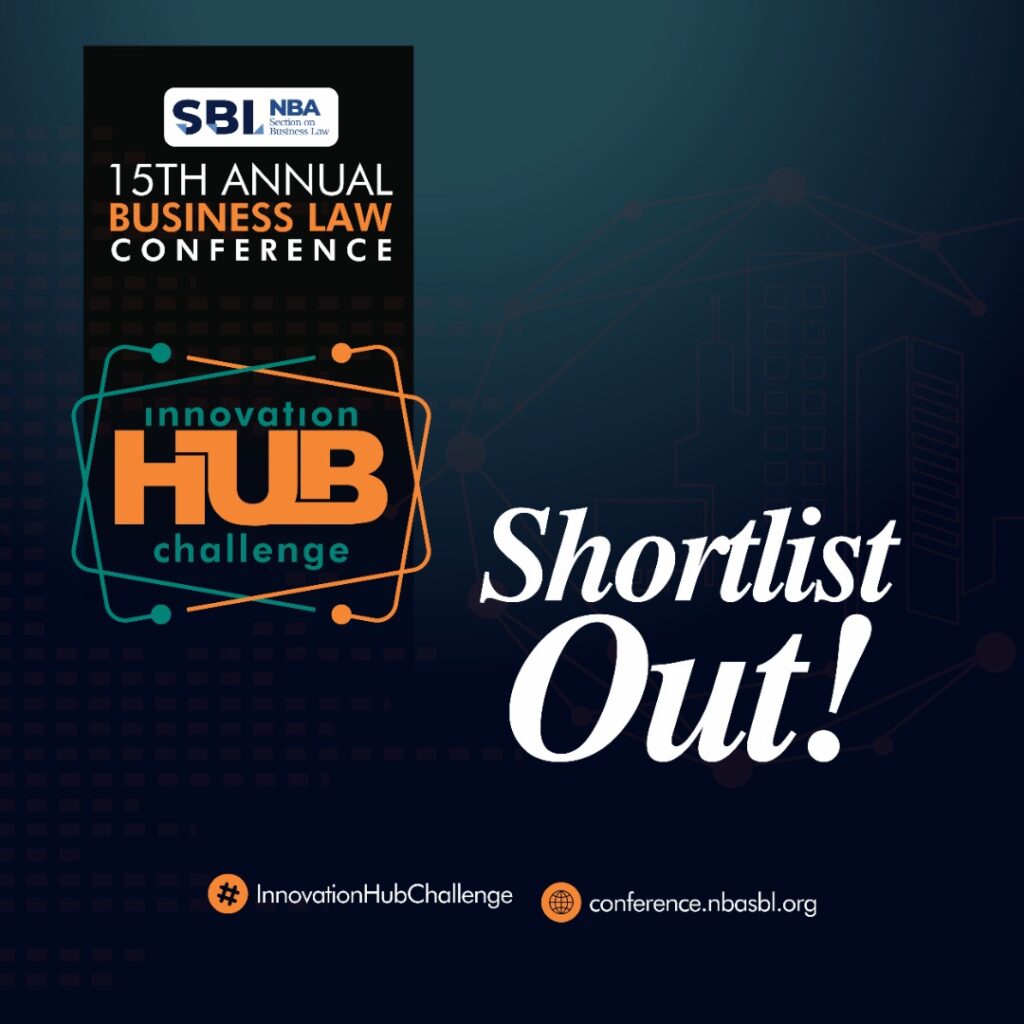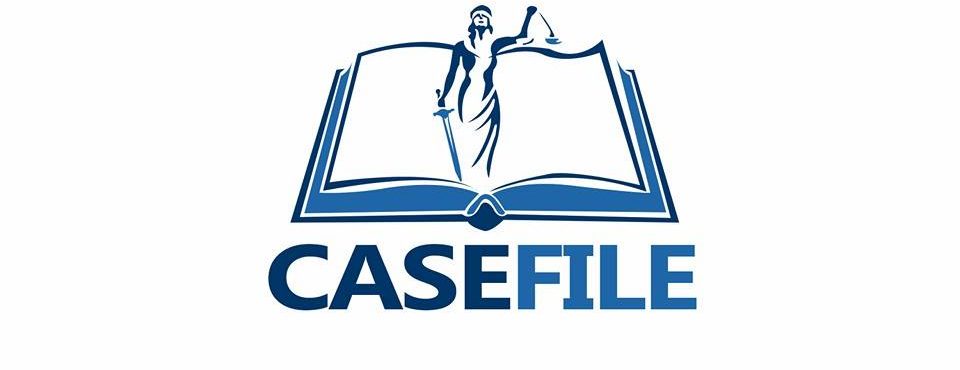The review panel for the NBA-SBL Innovation Hub Challenge has shortlisted 10 applications for the second stage of the challenge which will take place as a session at the Business Law Conference scheduled for July 14 and 15, 2021.

The 10 shortlisted applications were selected from a pool of about 40 applications across a wide spectrum of sectors including healthcare, insurance, education, fitness/wellness, transportation, financial services, and legal services.
The organisers said the quality of entries received show that given an enabling environment and opportunity, Nigerian innovators can make excellent and significant contributions to the digital economy.
The shortlisted innovators will be provided the opportunity to showcase their solutions and will be interviewed by another panel of distinguished judges different from the assessors.
The NBA-Section on Business Law conceived the Innovation Hub Challenge as a response to yearnings for creative and innovative solutions to some of the business and economic challenges facing the nation.
The challenge, born out of the theme of this year’s Business Law Conference “Re-Tooling Businesses for Change – Leveraging the tech Explosion”, is an effort by the NBA-SBL (and its partners) to contribute to the growth of the digital economy by providing seed funding and visibility to promising Nigerian innovators.
The Challenge invites Nigerian innovators who are working on promising technology solutions that addresses problems in any of the critical sectors of the economy to present their ideas and demonstrate their solutions to stand a chance of receiving some seed funding to advance their projects.
The review, conducted by a panel of nine astute assessors using a meticulous process, evaluated the applications on the basis of already evaluation criteria which include (1) Creativity & Impact; (2) Technical Feasibility & User Experience; (3) Business Viability & Overall Quality; (4) Team-work & Collaborations.
On creativity & impact, the assessors wanted to know, for instance, what the Big Idea was and what creative solution was being offered. Is the product or service offering a solution that is better, faster, cheaper, more convenient, efficient than whatever options exist?
While the assessors did not look too deeply at the technology driving the solution (the judges will examine and scrutinise that at the conference, they wanted to know what efforts, if at all, had been made by the innovators to test their products with some users and if they are leveraging such user feedback to improve their offering.
The assessors, realising that the seed funding being offered as prizes at the Challenge needed to be properly stewarded, looked under the hood to assess the applicants for business viability. The question the assessors needed answers to included whether there is a compelling business model that shows how value will be created and driven over time and whether the financial model is clear.
It is expected that the process for the second stage will be more rigorous.
Meanwhile, the shortlisted applicants have been invited to complete a second review process which will be evaluated by the panel of judges. Attendees at the conference will also be given an opportunity to vote to determine the most innovative solution. The attendees’ votes will form a part of the grading criteria to determine the final winners.
“We think it is important to add that those innovators who submitted a pitch but did not make the shortlist are encouraged to continue working on their solutions. Many of them are brilliant ideas that require encouragement, nurturing and support,’ said Rotimi Ogunyemi, chair of the CPC 2021 Technology & Innovation Subcommittee, co-chair of the Digital NBA Committee and chair of the ICT Committee, NBA- Section on Business Law.
“The SBL Innovation Hub had limitations as to numbers and was thus constrained to select only the top 10 based on the published criteria and scores,” Ogunyemi said.
The 10 shortlisted applications were selected from a pool of about 40 applications across a wide spectrum of sectors including healthcare, insurance, education, fitness/wellness, transportation, financial services, and legal services.
The organisers said the quality of entries received show that given an enabling environment and opportunity, Nigerian innovators can make excellent and significant contributions to the digital economy.
The shortlisted innovators will be provided the opportunity to showcase their solutions and will be interviewed by another panel of distinguished judges different from the assessors.
The NBA-Section on Business Law conceived the Innovation Hub Challenge as a response to yearnings for creative and innovative solutions to some of the business and economic challenges facing the nation. The challenge, born out of the theme of this year’s Business Law Conference “Re-Tooling Businesses for Change – Leveraging the tech Explosion”, is an effort by the NBA-SBL (and its partners) to contribute to the growth of the digital economy by providing seed funding and visibility to promising Nigerian innovators.
The Challenge invites Nigerian innovators who are working on promising technology solutions that addresses problems in any of the critical sectors of the economy to present their ideas and demonstrate their solutions to stand a chance of receiving some seed funding to advance their projects.
The review, conducted by a panel of nine astute assessors using a meticulous process, evaluated the applications on the basis of already evaluation criteria which include (1) Creativity & Impact; (2) Technical Feasibility & User Experience; (3) Business Viability & Overall Quality; (4) Team-work & Collaborations.
On creativity & impact, the assessors wanted to know, for instance, what the Big Idea was and what creative solution was being offered. Is the product or service offering a solution that is better, faster, cheaper, more convenient, efficient than whatever options exist?
While the assessors did not look too deeply at the technology driving the solution (the judges will examine and scrutinise that at the conference, they wanted to know what efforts, if at all, had been made by the innovators to test their products with some users and if they are leveraging such user feedback to improve their offering.
The assessors, realising that the seed funding being offered as prizes at the Challenge needed to be properly stewarded, looked under the hood to assess the applicants for business viability. The question the assessors needed answers to included whether there is a compelling business model that shows how value will be created and driven over time and whether the financial model is clear.
It is expected that the process for the second stage will be more rigorous.
Meanwhile, the shortlisted applicants have been invited to complete a second review process which will be evaluated by the panel of judges. Attendees at the conference will also be given an opportunity to vote to determine the most innovative solution. The attendees’ votes will form a part of the grading criteria to determine the final winners.
“We think it is important to add that those innovators who submitted a pitch but did not make the shortlist are encouraged to continue working on their solutions. Many of them are brilliant ideas that require encouragement, nurturing and support,’ said Rotimi Ogunyemi, chair of the CPC 2021 Technology & Innovation Subcommittee, co-chair of the Digital NBA Committee and chair of the ICT Committee, NBA- Section on Business Law.
“The SBL Innovation Hub had limitations as to numbers and was thus constrained to select only the top 10 based on the published criteria and scores,” Ogunyemi said.


